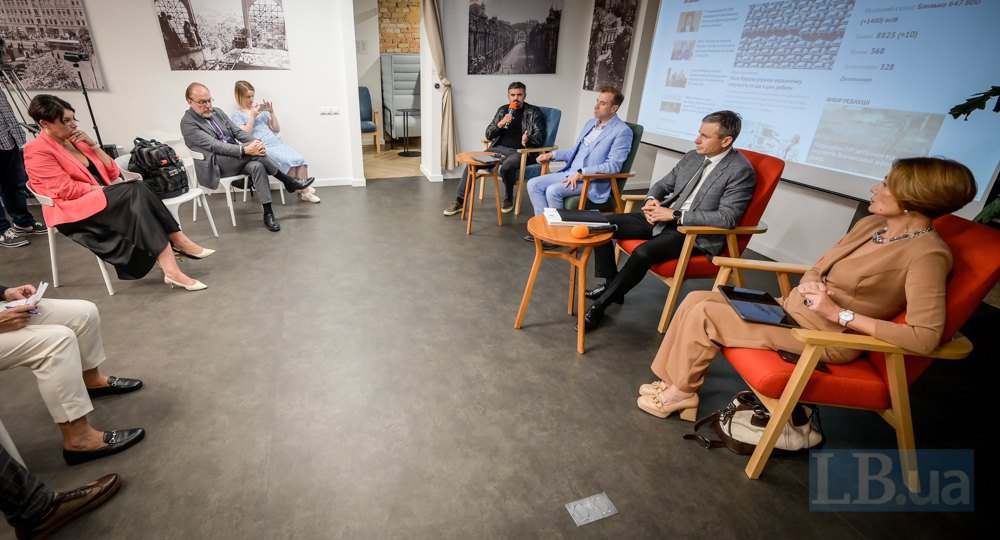
Serhiy Marchenko, Minister of Finance: "The tax hike is a necessary step"
The tax hike is a forced step by the government, and the government decided to take it only because other options have been exhausted, said Finance Minister Serhiy Marchenko.
The domestic borrowing market, he said, has reached its limit - "any new borrowings do not create new expenditures, they simply feed the existing system. In other words, they are used to pay off the payments already made and service them.
External borrowings (this year it is USD 41.3 billion, next year - USD 38.4 billion) are not guaranteed.
"This is not a given. No one is promising anything to anyone. I remember the first quarter of this year, when we had only 10% of the required amount of foreign aid due to irregular financing. And this is a fact that must also be taken into account. No one promises that we will be funded continuously and for a long time. And the fact that we now have these options is the result of some work and an understanding that it will be extremely difficult for Ukraine without help," the head of the Ministry of Finance said.
According to Marchenko, it is not possible to cut spending quickly and sufficiently, as UAH 2.2 trillion is military spending, and no one will dare to touch it during the war. Social spending was also cut by 50 billion hryvnyas, and this step was also criticised.
"Any cuts in spending have certain consequences, and there are either specific people or specific organisations behind them who will lose their jobs. Either they should just be told: that's it, you cannot be useful to this state. And it's not easy," the minister said.
According to Marchenko, the Ministry of Finance offered various options for raising taxes (including an increase in personal income tax, which is being communicated as the main alternative to raising the military fee, which will affect the entire population, not just those who receive official salaries) In the end, the MPs chose the one they voted for.
"What is right is what gives 226 votes [for the adoption of the bill in the Verkhovna Rada]. Everything else is an illusion. If we don't get 226, it means we haven't finalised it. Therefore, any format, any combination, but to have 226," the minister commented.
He noted that the Ministry of Finance uses quick and point solutions, as "there is only one specific problem in the country that needs to be solved - the security problem. All other problems are secondary".
"From our point of view as the Ministry of Finance, everything is very simple. If the maths doesn't add up, let's think about how to make it add up. If it works out, everything is fine, we've made it through the year, we've made it through two years, and maybe the war will end. It's a simple logic," Marchenko said, "and it doesn't arise because we don't perform our functions well, don't think about the future, or think about better times after the war rather than survival. It is simply because I remember the year 22. It was, frankly, a nightmare."
In his opinion, economic reservation could improve the situation with budget revenues, but due to its controversial nature, it has been discussed for a long time. In addition, the military is unlikely to be convinced that it is necessary to do so, the minister believes.
"We already have reservations. A million men are booked. So if it was a truly transparent way, when you pay taxes, register and this allows you to at least be guaranteed that you will not be caught, immediately packed up and sent somewhere without you knowing, it would be better. But the discussion is not easy, because it should be combined with mobilisation plans, with an understanding of what is happening there, what needs are there and whether they are completely covered," Marchenko said.
Regarding systemic reforms, the Minister agreed that it was necessary to reform the tax and customs services, but complained about the lack of time - 90% of it is taken up by external issues.
Kateryna Rozhkova, Deputy Governor of the National Bank of Ukraine: "It looks like banks are being punished for working transparently and honestly”
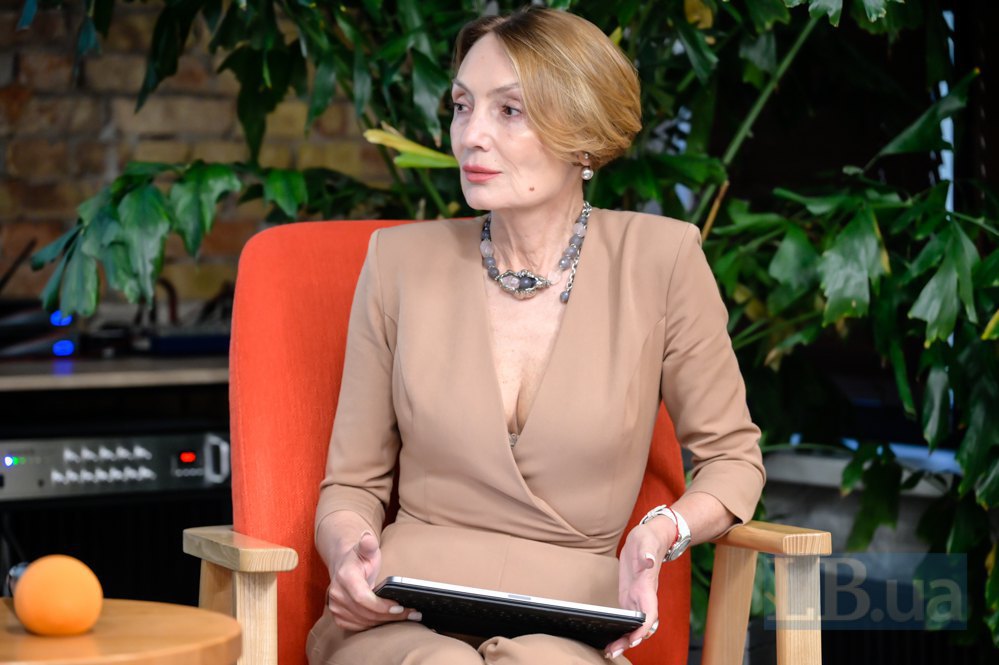 Kateryna Rozhkova, Deputy Head of the National Bank of Ukraine
Kateryna Rozhkova, Deputy Head of the National Bank of Ukraine

The National Bank of Ukraine opposes the Ministry of Finance's proposal to increase the profit tax on commercial banks to 50%. According to Kateryna Rozhkova, the reason for this is that the banking sector has transparent reporting and white salaries, and it is the easiest sector to increase taxation.
"When I was at both the working group and the committee, the arguments from respected MPs were similar: just imagine, we have raised the tax for them from 18% to 25%, and they continue to be profitable. Sorry, but banking is a business. And it has to be profitable," Rozhkova said, adding that additional taxation is like a punishment for the banking business, which today "pays taxes consciously, transparently and honestly".
She also recalled that last year, when the need to raise taxes was discussed, the NBU proposed an increase from 18% to 36% for two years - 23/24. The Ministry of Finance concluded that a one-off payment of 50% should be made, and that the tax should be raised to 25% in 2024.
Taxation by another 25% will bring in only an additional UAH 19 billion [out of the 500 billion needed], of which the banking sector will pay UAH 10 billion this year and UAH 9 billion next year if the law is passed, Rozhkova said. But for the shareholders of commercial banks, this will offset the purely business component, she stressed.
The banking system already covers UAH 360 billion of the budget deficit by buying government securities. And commercial banks are prohibited from distributing and paying dividends to shareholders.
"We have certain obligations to the European Union in terms of European integration to implement the regulations that will require banks to hold capital. And if the increased tax is applied this year, we see that a certain number of banks, not many of them, but among them there are two large state-owned banks, will violate the capital ratio. These banks have already come to us today and said that they will write a letter to the shareholder from their supervisory boards and say, please, capitalise us, because we will violate capital standards," Rozhkova summed up.
Andriy Dlihach, Professor of Economics: "The increase in the military tax will drive wages into the shadows from 35% to 44%”
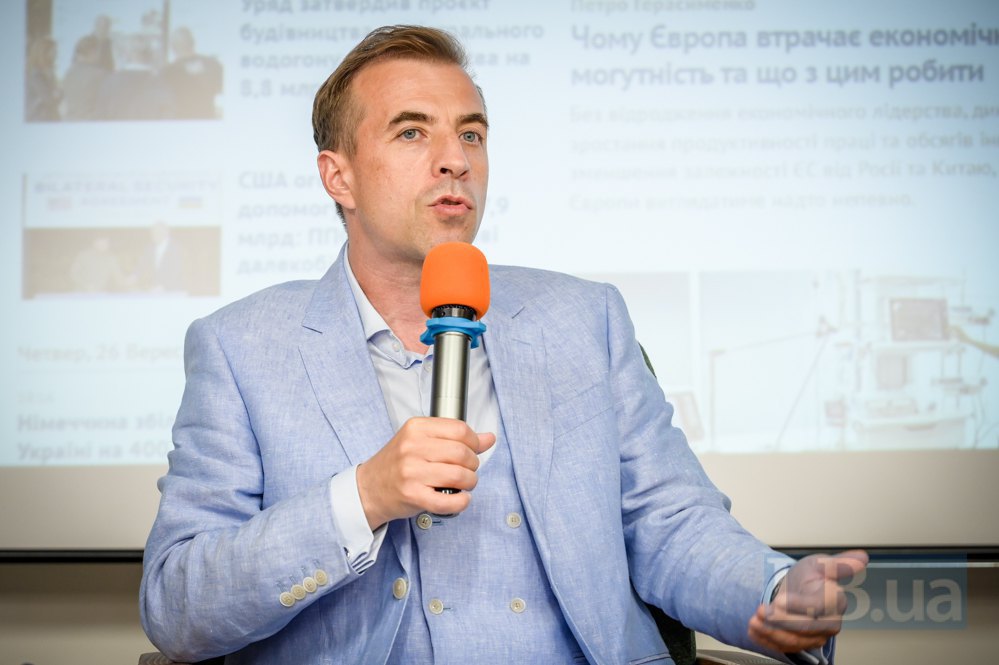 Andriy Dlihach, head of the international business community Board, professor of economics, founder of the Advanter Group
Andriy Dlihach, head of the international business community Board, professor of economics, founder of the Advanter Group

Modelling for all industries, business sizes and regions shows that 35% of salaries in Ukraine are in the shadow, said Andriy Dlihach, founder of Advanter Group.
"This 35% turns into 44% after the military tax is increased. Why? Because it's a behavioural economy. Together with chief accountants and financial directors, we calculate all this. The current burden on the payroll is 34%. If it increases, certain limits are crossed and there is a greater interest in shadowing part of the salary. In order to de-shadow salaries, the burden on the payroll should not exceed 22%. In this case, we are actually reducing the shadowing of wages to a minimum percentage," said Dlihach.
An alternative to raising the military tax is a 2% increase in VAT, which will affect not only those who are officially paid, but all Ukrainians and will cause minimal inflation.
But both of these are only targeted measures, the businessman believes. Whereas systemic economic reforms will bring about three times more revenues to the state budget. First of all, customs and tax reforms, the reform of the Criminal Procedure Code and economic reservation.
The economic effect for the state budget from economic booking is UAH 200 billion, Dlihach said.
"But it is not being implemented. This is not a matter of discussion. In any audience with the military, we show and prove all this. The problem is that it is only a matter of making a decision. Because we delayed this decision, it has become such a problem for a long time. And 80% of businesses do not have any bookings," commented the head of the international business community.
In addition, an asset tax could be introduced, Dlihach believes, although this would require putting the registers and land cadastre in order, but business supports this idea.
"In the end, this will give us 500-600 billion plus next year. And there will be no need to complain again in a year's time that we need to raise the military tax by 2%," assured Andriy Dlihach, "because in 2025, exactly one year from now, we will be discussing even worse problems because no systemic changes were made in 2024. We will have to raise taxes even more, and the reserve has already been exhausted."
The businessman noted that investors are not choosing Ukraine as a jurisdiction because of the lack of liberal reforms. This is due to distrust, lack of growth, and capitalisation.
"That's why we have systemic reforms ahead of us. And the vision of Ukraine is not an interpretation of outdated textbooks, but a different understanding of what we want," said Mr Dlihach.
Ihor Liski, Chairman of the Supervisory Board of EFI Group: "Along with raising taxes, the quality of their management must improve”
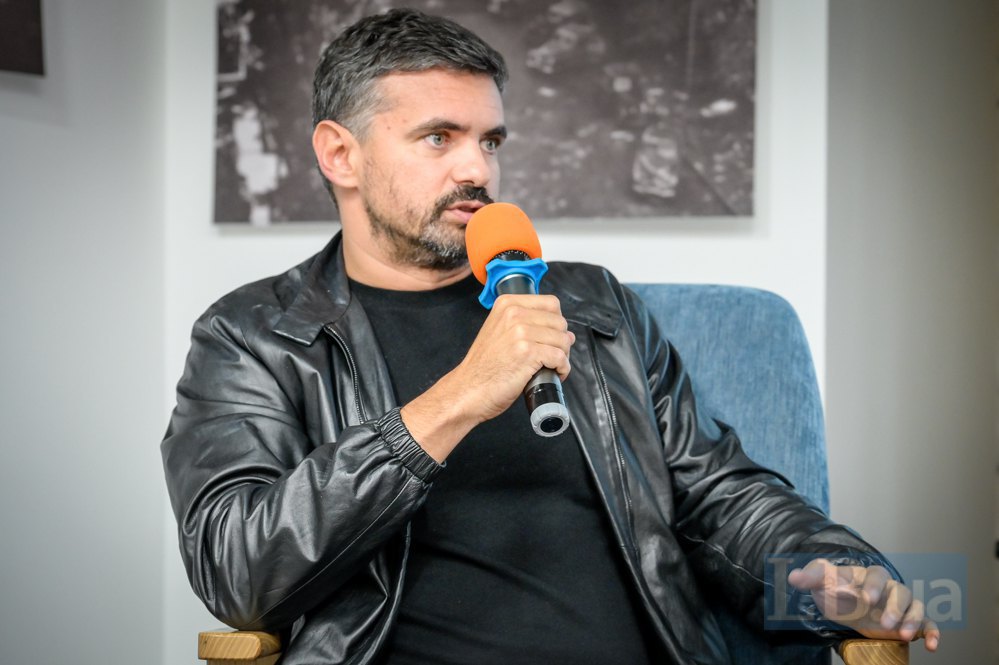 Ihor Liski, Chairman of the Supervisory Board of the investment company EFI Group.
Ihor Liski, Chairman of the Supervisory Board of the investment company EFI Group.

The main function of the state today is to mobilise and collect the necessary taxes to support the army, to provide for the military and at least the part of weapons production that exists, said businessman Ihor Liski.
"Personally, I have always been a libertarian and an advocate of tax cuts and other administrative measures, but during the war, I agree with the Minister [Serhiy Marchenko, Minister of Finance], the discussion is in a slightly different vein. And our society is somewhat infantile about it. Every time I say that we, the taxpayers, pay the salaries of our military. If we do not provide them, we will pay another state," said Ihor Liski.
However, he acknowledged that there is a lack of communication with the government on how to do it right, and a number of questions arise about certain options.
If the military tax is raised, this money should go specifically to the war, to the army. And everyone has to pay it: both individual entrepreneurs and IT professionals.
If it is a VAT increase, how will it be administered? "Where is the head of the tax office? We don't have one. And there is distrust," the entrepreneur said.
He believes that in the case of economic reservations, it is necessary to move away from the distorted rhetoric that those booked will not fight and will simply officially pay off.
"If we have people who are supposed to work for the country and pay taxes, we should give them this opportunity. At least with a six-month reservation. When it ends, you have a legal base, a company. Maybe it will happen that everyone will go to the front, who knows. But at least until then, we will have a reasonable, manageable situation in this area," the businessman said. "This is just a temporary agreement, an understandable, predictable situation, that a person can work within the law.”
There are questions about privatisation: why the government is so slow in privatisation, and the war is not the reason, says Liski. They are always waiting for a better moment, and then there is the crisis of 2009, then the war of 2014.
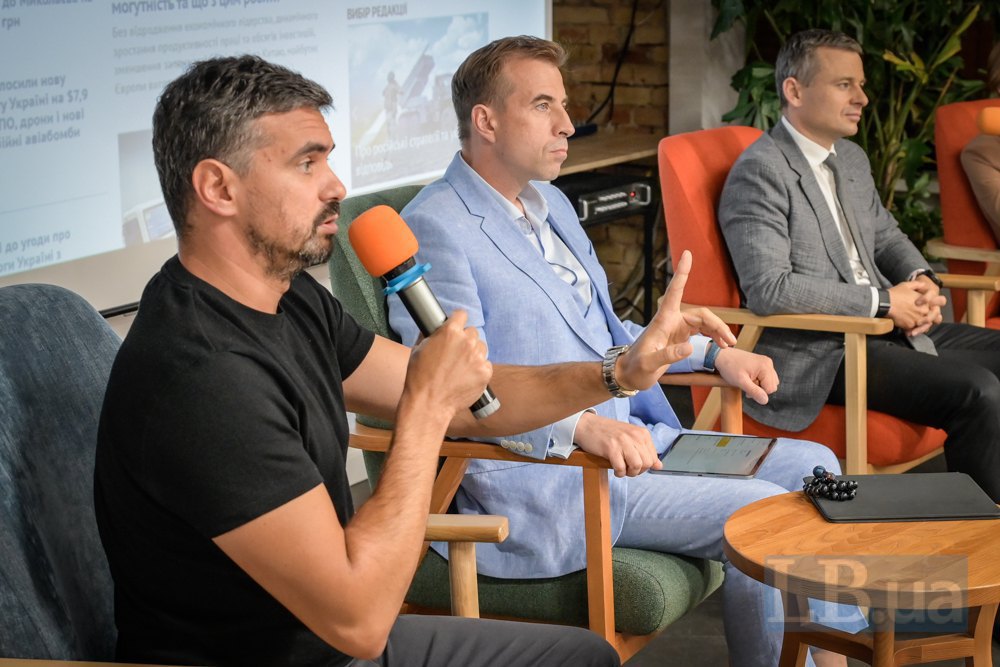
He also mentioned customs, where changes are more than urgent.
"We are now going to twist all the businesses, think about how to survive, and what customs is doing at this time. Yes, we will have more expensive iPhones. Maybe some clothes will be more expensive, etc. But, on the other hand, this will stimulate Ukrainian production. What's wrong with that? Can't we administer this history once and for all during the war? This is super important," said the EFI Group CEO.
Along with raising taxes, the quality of governance must improve, he added.
"Tax and customs are key stories. No matter what we want, no matter what we think, we cannot do without them. Without good management of these two bodies, finances will always limp along," the businessman concluded.
Yaroslav Zheleznyak, MP, the Voice faction: "The tax increase was communicated even worse than the law on mobilisation"
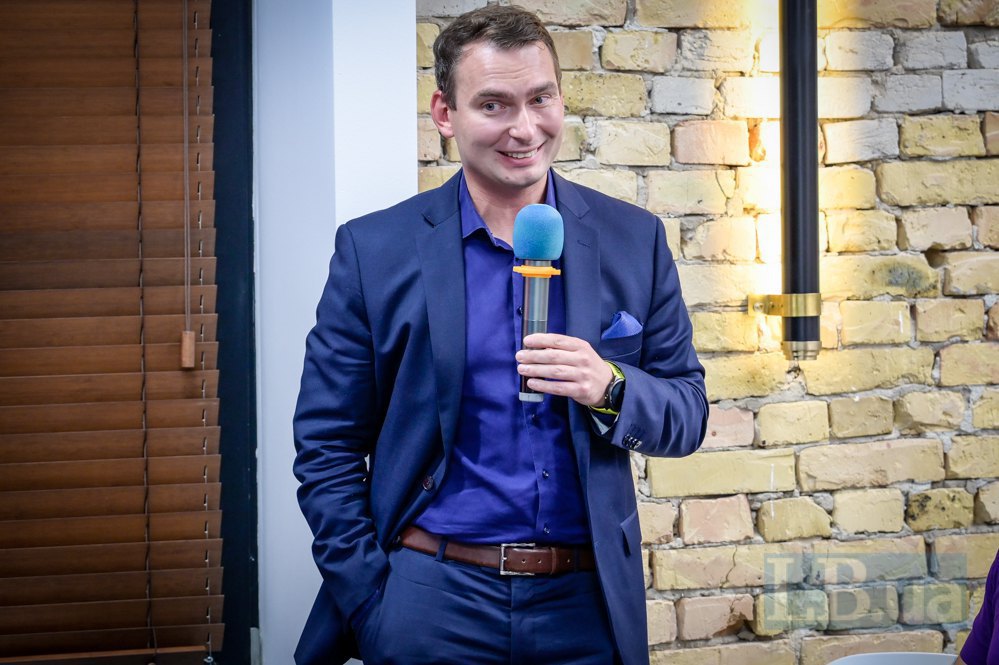 Yaroslav Zheleznyak
Yaroslav Zheleznyak

According to MP Yaroslav Zheleznyak, there are mostly no people in the country today who would categorically oppose tax increases. Business is also in favour, he added, if the increase is fair.
"But explain to me now, as a deputy who has to vote for the budget, how we have raised excise taxes and returned the Road Fund before? Explain to me cashbacks or marathons [referring to the telethon]," Zheleznyak said.
He also added that the draft law on tax increases would not have passed the first reading if the law on customs reform had not been voted for before, and the law on BES reform before that.
"But there is one problem. I saw almost no supporters or helpers from the government to make this happen. There was a lot of resistance... Are we going to wait for the IMF with the tax service as well? Or will we finally do something ourselves, because we need it, not foreigners," the MP said.
He also analysed what exactly the tax bill proposes:
"We are increasing the military tax. Military is marketing. It goes to the budget and will continue to go to the budget after the war unless the Budget Code is changed. We are increasing the tax on the only people who pay white salaries. That's it. This is 99% of the tax changes. Plus, okay, banks and financial companies - up to 25%. There is nothing else.
What Andriy said (Andriy Dligach noted that the increase in the military tax would drive wages into the shadow economy from 35% to 44%). It is a mathematical truth. If we replace this with a 2% VAT increase, everyone will pay. Those who ride in a minibus will pay a hryvnya, those who drive a Mercedes will pay all the VAT on fuel. Mathematically, this is 45 billion more next year... Why are we not raising VAT? Because someone has persuaded the president that raising VAT by 1% is a big inflation," Zheleznyak said.
In general, he stressed, the tax hike was communicated to society and business even worse than the law on mobilisation.
Nina Yuzhanina, MP of European Solidarity faction: "Name one sector of the economy that has a profitability of at least 10%. Who are you raising taxes for?”
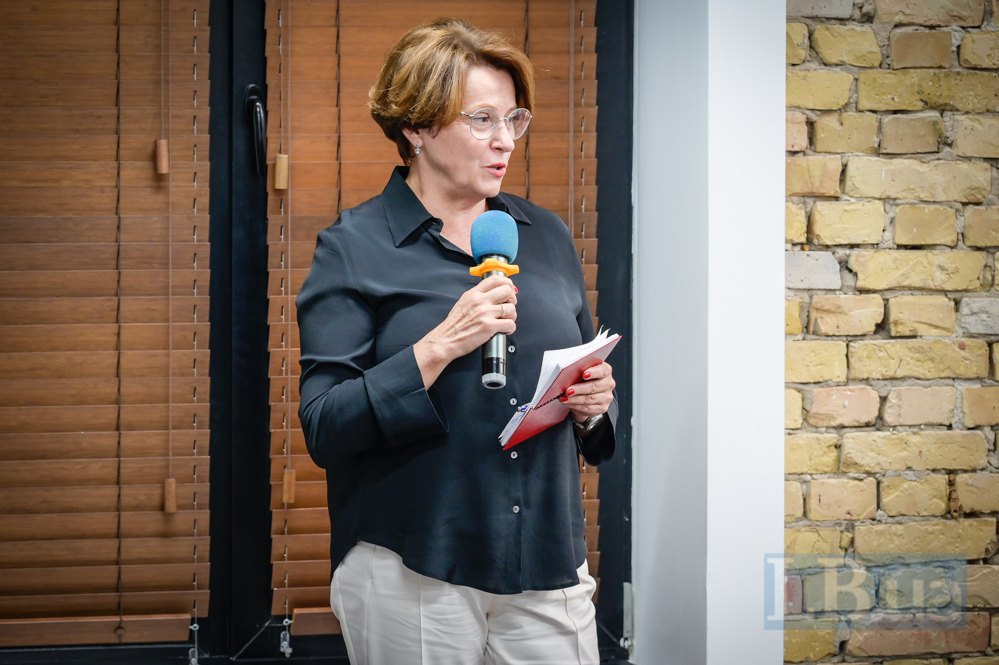 Nina Yuzhanina
Nina Yuzhanina

A member of the Parliamentary Committee on Finance, Taxation and Customs Policy, taking the floor, immediately criticised the Ministry of Finance's internal borrowing mechanism.
"I agree that the system you launched in '22 was justified at the time and was indeed a tool. But you in power knew that the war would not end, you continued this flywheel - now we have an unfinished war, year 25, and the budget will receive only 17 billion in additional funds... Didn't you know that the war would not end in either '24 or '25?" Yuzhanina said.
She also commented on the tax increase for banks and suggested dividing the income from direct banking activities and government bonds if the increase seems unfair to some.
"If you think that the system of "all under 50" is unfair, please make a normal system of administration. You don't need a great mind to do that," the MP said.
She also added a comment about military spending: record amounts are spent not on providing for the military, but on fortifications, "which are moving into the category of 'Big Construction 2.0'".
At the same time, Yuzhanina recalled the unprecedented trust in the government in early 2022, "when businesses transferred their account balances as advance payments, paid salaries to employees who were not even in Ukraine, and then... when they did not tell the truth about the end of the war, information about theft appeared, a moment of distrust came and everyone "hunkered down".
"What is the profitability of business now? Tell me one sector of the economy that has a profitability of at least 10%. Logistics or something else, when they count up to 5% profitability. And businesses outside Ukraine say that we are at zero profitability. Who are you raising these taxes for? Look, life is really only in Kyiv. Go outside Kyiv and see what is happening to everyone there.
About 52% of businesses are ready to stop investing in their business due to the tax increase. Let's face it," the MP said.
Vitaliy Deyneha, founder of the Come Back Alive Foundation, former Deputy Minister of Defence: "Why does my mum pay 40% of her salary, while an IT specialist pays 5%?"
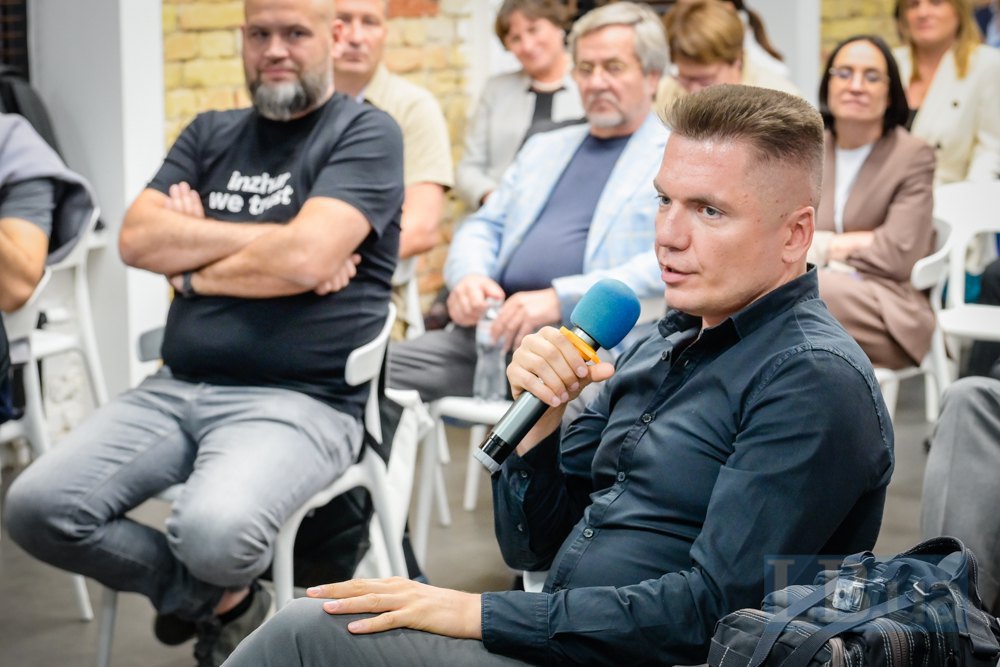 Vitaliy Deyneha
Vitaliy Deyneha

Taking the floor, Vitaliy Deyneha additionally highlighted the unfair distribution of taxes among Ukrainians.
"My mother gets her small salary and pays all the taxes because her employer pays all the taxes. She is a pensioner - 68 years old. At the same time, my fellow students, my IT guys, pay 5% of their $5,000 or $10,000. If they are also in Diia.City, they pay 5% and have a reservation.
I understand that we have a very influential deputy prime minister who is very much a figurehead. But don't you think it's a bit unfair when a person with 10,000 hryvnyas pays a total of 40%, while a person with 5,000 dollars pays 5%?" - he said.
Vitaliy Deyneha also responded to a remark made by Finance Minister Serhiy Marchenko, who called on everyone who criticises the Ministry's actions or seeks systemic reforms to join the government, saying that this is the only way to be involved in their implementation.
"I have been in the public sector. Thank you for the invitation. We will be happy to come again if the rules of the game are a little clearer. And on one more condition - that the deputy minister or his subordinates, heads of departments, can afford a mortgage. I would like that very much.
Chief specialists in a department, directorate, or office of the Ministry of Defence can receive UAH 20,000, UAH 15,000, or UAH 25,000. I understand that raising salaries for officials is a super unpopular topic. Everyone wants to beat this cow with a stick to make it give more milk. But we also understand that the NABU will need exactly as much as we cannot pay [market salaries]. We push people into the zone where they are tempted, so to speak. Are we even considering raising officials' salaries to market levels?" - asked the former Deputy Minister of Defence.
Mykhaylo Radutskyy, MP of Servant of the People faction: "There is only one recipe for unshadowing - universal declaration”
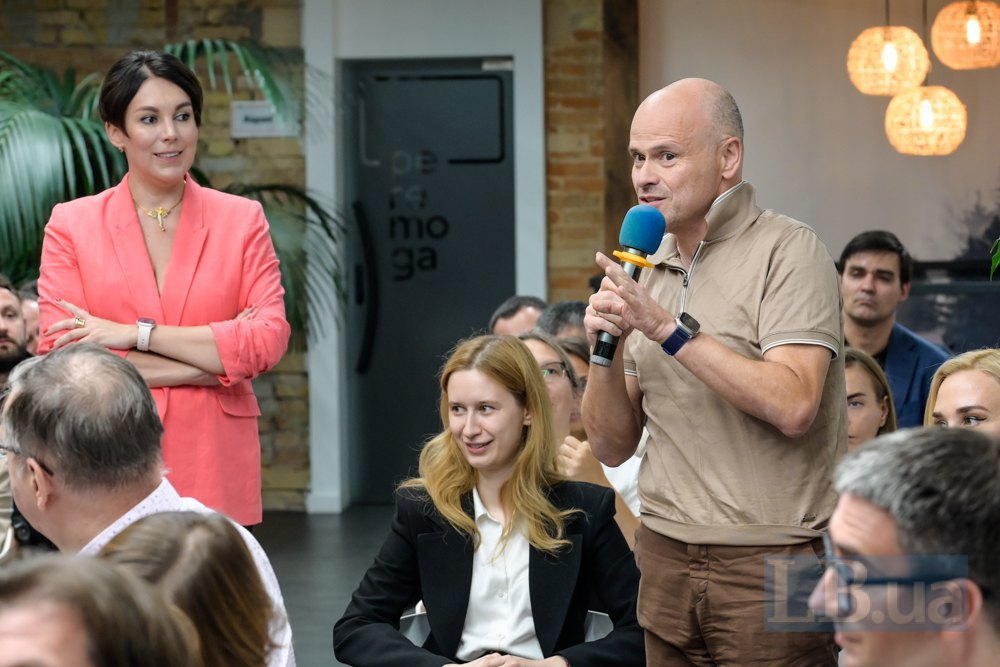 Mykhaylo Radutskyy
Mykhaylo Radutskyy

Mykhaylo Radutskyy, Chairman of the Verkhovna Rada Committee on National Health, Medical Assistance and Medical Insurance, has voiced a "single" recipe for preventing corruption and ensuring that everyone pays taxes: universal declaration.
"The declaration should be filled in not only by Minister Marchenko, not only by MP Radutskyy, but even by a technical employee of your business. Then there will be nothing to give and nothing to fear from a relative in the prosecutor's office. Because if the social contract should be the same (everyone is for justice), let's make it the same," Radutskyy said.
He also mentioned the initiative of his faction colleague Danylo Hetmantsev, the White Business Club: despite all the criticism, the results of de-shadowing in the first 8 months of 2024 amounted to UAH 100 billion.
He also commented on the innovation envisaged in the state budget for 2025 - the transfer of all medical institutions to treasury accounts from private ones (expert organisations opposed this, as payments in the treasury take two weeks to two months to be approved, which threatens the timely procurement of medicines, consumables, payment of salaries, etc.).
"The chief doctors are writing a petition that he [Finance Minister Sergiy Marchenko] is stopping the reform [healthcare reform]. He is not stopping it. He just says: dear friends, keep your balances in the Treasury, not on private deposits, and put the interest in your pocket. This is all white business," the MP said.
He concluded by saying that he was "ready to pay 7 or 20 per cent of the military tax, 10 or 30 per cent of VAT, as long as the colourful rags do not hang on Khreshchatyk".
Tetyana Ostrikova, member of the Supervisory Board of Altbank: "Additional taxation of banks is about selectivity and injustice”
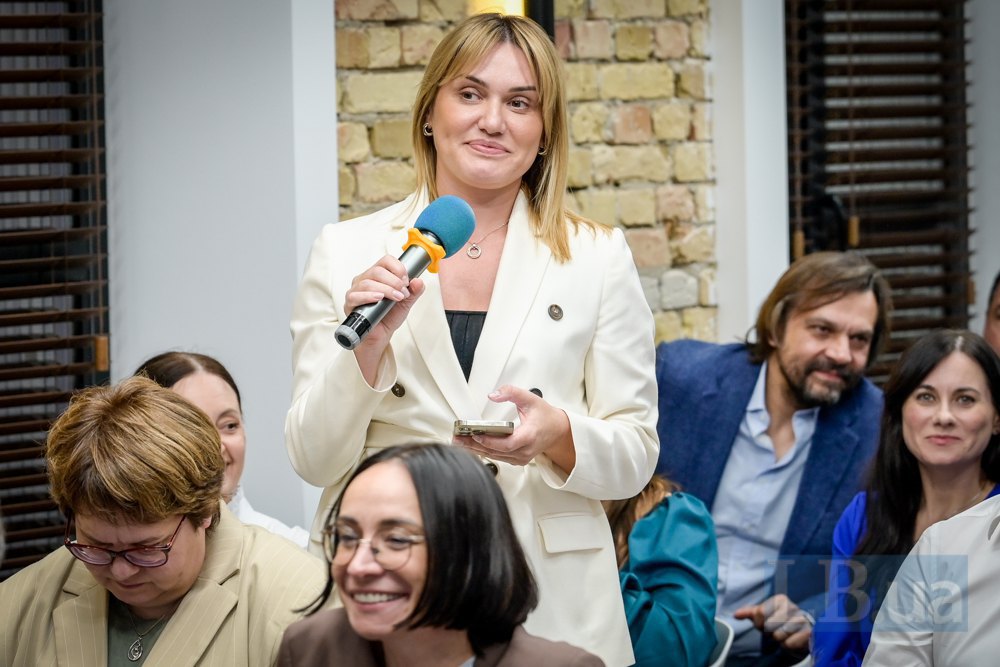 Tetyana Ostrikova
Tetyana Ostrikova

According to former MP and banker Tetyana Ostrikova, the discussion panel is not about raising taxes or implementing systemic reforms. We need both. However, without objective data, we can only believe the Ministry of Finance that it has optimised its spending.
"But then the question arises as to why we see salary increases for customs officers and law enforcement officers in the budget; non-transparent distribution of the Road Fund by some decisions of the Cabinet of Ministers, which generally violates the Budget Code and the Constitution. Therefore, we need to do some work here. I hope that this will be done before the second reading," Ostrikova said.
She also believes that the increase in corporate income tax for commercial banks is selective.
"When retrospective taxation was introduced last year, we, the banks, were promised that it was a one-time critical measure. If there are excess profits, everyone knows that the main beneficiaries of depreciated bonds and government bonds, of securities transactions are state-owned banks. Please, you could have done this by withdrawing dividends, and you would have received this money to the budget. Instead, what Ms Kateryna [Rozhkova, Deputy Governor of the NBU] said today is that there will be a situation where state-owned banks will need to be recapitalised, meaning that the money we, the citizens, will pay from our incomes will be used to recapitalise state-owned banks. Excuse me, what do we get here?
We could, for example, talk about raising the tax rate for the future, but not take away the income we have been working for all year.
And our budgets have provided for this interest income. Nina Petrivna [addressing Yuzhanina], you know that interest income is not only income from securities. Lending income is also interest income. And then we should not be accused of not lending to the economy. Because today, finding liquidity, attracting good clients with liabilities, finding clients for lending, and issuing a loan to an enterprise in a difficult financial situation is also a lot of work. And banks have been doing it all this year, and now you are telling us that no, we are taking 50% from you," complained the chairman of Altbank's supervisory board.
She also noted that the Ministry of Finance has questions about the chosen way to increase general taxation.
"The issue of fairness is the military tax or VAT. I calculated today based on real nominal GDP: a one percentage point increase yields 40 billion. Why can't we raise the VAT rate? Work with customs to ensure that everyone pays and fair competition is not distorted by customs optimisers. And to combine these two reforms?
Why did the Ministry of Finance choose this way? The military fee goes to the general budget fund. It in no way finances expenditures on the army. I want us all to understand this," concluded Tetyana Ostrikova.
Valeriy Pekar, lecturer at Kyiv Mohyla Business School: "Discussion about taxes is a dialogue between an autopilot and a voicemail”
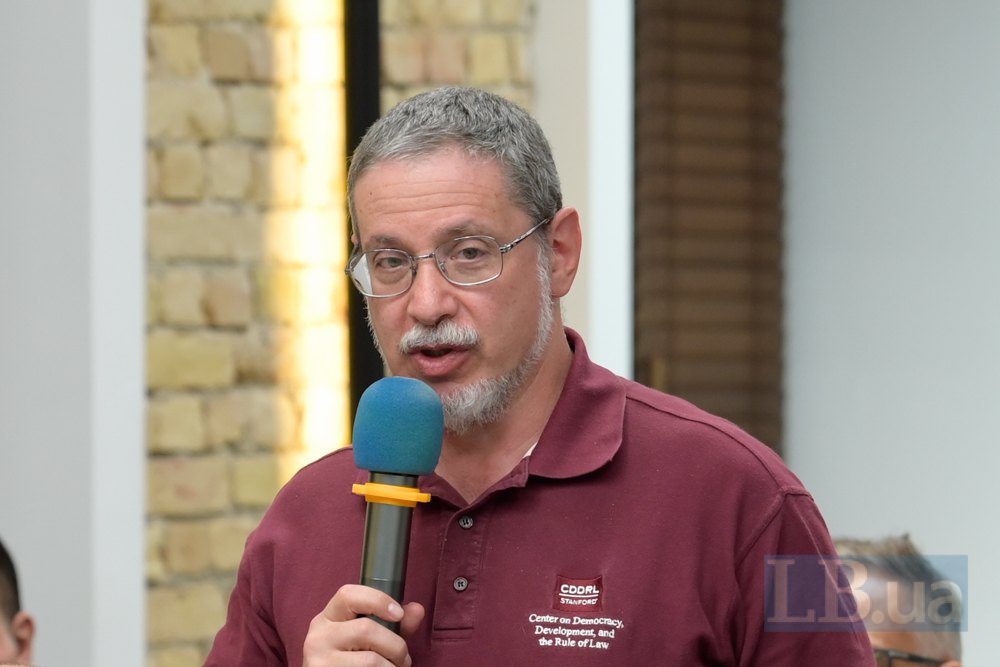 Valeriy Pekar
Valeriy Pekar

Valeriy Pekar called the discussion about taxes on the New Country platform "a dialogue between an autopilot and an answering machine".
"We have witnessed exactly such a dialogue. The government says to business: you don't pay taxes, you don't pay extra, you evade taxes in illegal ways, you lobby in illegal ways, you don't do much else, and in general, go work in the government.
The business says to the government: you have corruption and lack of transparency. You have corruption, lack of transparency, and a hell of a lot of things going on at customs, and a hell of a lot of things going on at the tax office. It's a mess. This was not said, but it could have been added: go work in business, try to earn dividends for investors on their investments. And show them how you do it.
Mathematics teaches us that if a problem has no solution in a certain number of dimensions (and here it is a one-dimensional thing, two parties seem to be discussing each other, but in fact they are not - each is discussing with itself), we need to add a third point," the entrepreneur and teacher said.
This third point, in his opinion, could be the principle of No taxation without representation.
"Business should say: okay, dear government, raising taxes during the war is an absolutely necessary step, and we will do it on our part. And what will you do on your side? Because, let me remind you, a contract - whether social or non-social, new or old - is generally a contract between two parties. Each party does something to meet the other up to the point of agreement. To meet in the middle, as one great politician of our time said," the economist outlined his opinion.
Pekar emphasises that neither side has spoken about this. And this can be turned into a tool.
"For example, in our judicial reform, we have the Public Integrity Council, which plays a role in one way or another. And it is an instrument of the new social contract. This is the same representation without which taxation is impossible. Where is the Public Integrity Council at customs, for example? At the tax office? When will these people be appointed?
I am always in favour of finding a third point and getting out of this stretch that does not work. Today we have seen a discussion in which the parties will go away satisfied with themselves and nothing will happen... I have been watching what is happening here for ten years, starting in 2014. And this dialogue has been held thousands of times and leads to nothing. Let's get out of this vicious circle, because I don't see any other way... We'll just meet in ten years and talk about the same things," the businessman concluded.
Taras Kozak, President of the Univer Investment Group: "With such tax changes, black business will only grow”
 Taras Kozak
Taras Kozak

Business does not want to raise taxes, but is forced to do so because it understands its responsibility, says Taras Kozak. Meanwhile, black business will only grow against this background.
"Grey, black business is just happy that taxes are being raised in the country, because white business is becoming less competitive, black business is earning more, squeezing out white business, and they are doing very well. And as long as these proposed taxes are about rates, not the tax base, this business will earn more. Unfortunately, the state does not see this and does not want to do anything about it," the president of the investment company stressed.
He also focused on an important option - asset taxation.
"It's been 10 years since we came up with a liberal tax reform together with several people from this room, including Nina Petrivna and Tetyana Ostrikova. It was about taxing assets rather than income. The government keeps saying: it's not the right time, it's complicated, we can't do it. For 10 years, it has been saying: yes, we will do it, but let's start next year. Taxation of real estate, land, luxury goods is understandable, especially in times of war. It does not kill the initiative, it is the right assets and brings in revenue for the state. Unfortunately, it's still not the right time and it will probably continue," Taras Kozak summed up.
Halyna Yanchenko, MP of the Servant of the People’s faction: "Scaling up defence production and allowing exports would significantly improve the situation with budget revenues”
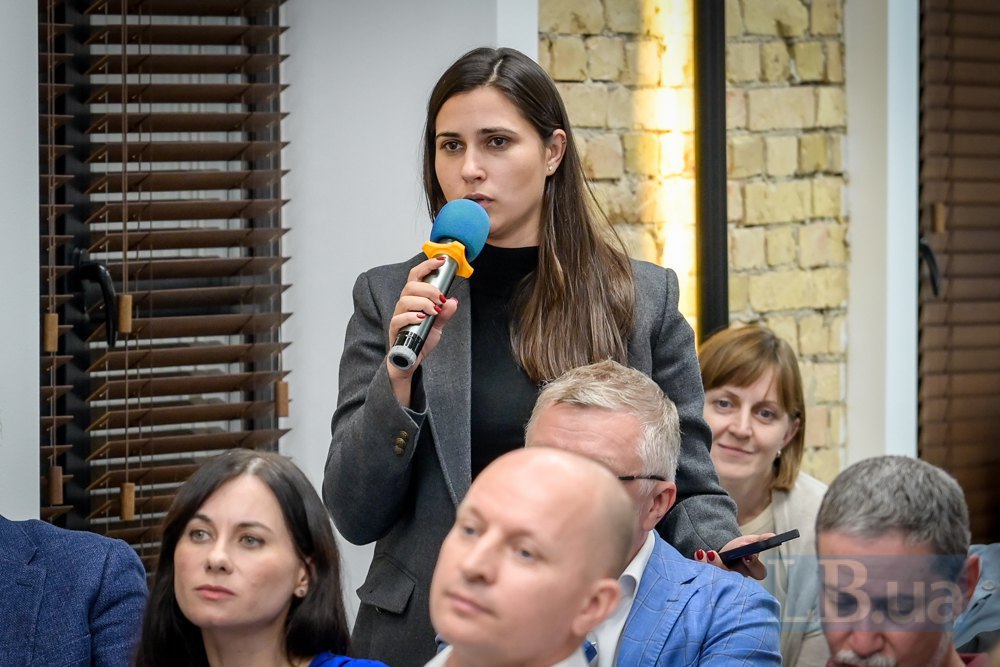 Halyna Yanchenko
Halyna Yanchenko

"You know, during this discussion, I thought I could physically feel the pain of the speakers when they were making their speeches. That's because we narrowed this discussion down to a discussion of how to collect more taxes from a not only very small, but constantly shrinking tax base. Instead of looking a little bit wider, at how to expand this tax base and where unreasonable or outdated regulations, what I call "tightened screws", prevent businesses from squaring their shoulders, earning more and paying more," the MP began.
She believes that the sector that should be paid attention to during the war is the defence industry, which "has been performing miracles over the 2.5 years of the full-scale invasion".
"In 2.5 years, arms production in Ukraine has increased sixfold. No other sector has shown such growth dynamics in such a short time during all the years of independence. What is happening in Ukraine? Instead of reviewing the regulation in this area and tightening the screws to make the scale of defence production even more active, we are sitting like a dog in the hay with these tightened screws and additional regulation that stifles the development of the defence industry.
My colleagues here said that they are issuing loans, banks are actively lending to everyone, including with preferential loans, the President's 5.7.9 programme... And how much hryvnia was spent on preferential lending to the defence industry? Zero.
...An amendment has already been made, and Oleksandr Kovalchuk and I, along with 20 other MPs, are working to provide at least UAH 2 billion for preferential lending to the defence industry to cover the difference. I ask Sergii Marchenko not to block it. We know where to get it from," Galyna Yanchenko said.
In addition, she suggested allowing the export of surplus defence products.
"Both Umerov and Kamyshin said that today the Ukrainian defence industry can produce products worth $20 billion a year. Imagine the number of jobs and taxes paid. It's about expanding the tax base so that we don't hurt everyone physically. At the same time, the Ukrainian state, which is the only monopoly customer and purchaser, can only buy for $6 billion. This is also a question for the government - it needs to reconsider this export ban. Just like when Covid started, it was forbidden to export everything that was needed to fight Covid (masks, gloves and antiseptics), while we were producing too much antiseptic. Nevertheless, it was banned for a long time. This is an unreasonable regulation, it is unreasonable to ban the export of surplus products," the MP believes.
Mykyta Karpenko, owner of the Paramedic group of companies: "There is a catastrophic problem with staff in the regions"
 Mykyta Karpenko
Mykyta Karpenko

Mykyta Karpenko, like Nina Yuzhanina, believes that Kyiv is somewhat detached from what is happening in the regions, where a recruitment disaster has already occurred.
"You are sitting here, like in a big Potemkin village, discussing serious good things. But in the regions, there is one catastrophic problem that I face every day: I cannot find people to work for me who I need to officially employ.
First of all, when a man of military age comes to me (we are opening an office in Kyiv), he asks: "Do you book?" - "We don't book." - "I won't be officially registered then." So, as the ultimate beneficiary and stakeholder of this very reform, I would like to address the dear MPs first of all: please, cost-effective booking is the number one issue.
We will pay more, so much the better. But please make the conditions for economic booking equal so that we can legally protect our staff. Don't give someone a bribe or make any inquiries," the businessman called.
Andriy Zhurzhiy, lawyer, former MP: "If everyone pays taxes, then the Ministry of Finance should too"
 Andriy Zhurzhiy
Andriy Zhurzhiy

According to lawyer Andriy Zhurzhiy, if everyone in the country pays capital taxes, the Ministry of Finance should also do so.
"Banks raise capital and pay taxes. Businesses raise capital and pay taxes. Dear Ministry of Finance, you raise capital and for some reason do not pay taxes.
No minister or MP is interfering with this. It is the sole position of the Ministry of Finance not to tax income from domestic government bonds. This is wrong. If we have to pay taxes, we have to pay all of them. The possible remark that it will be difficult to raise capital is not accepted, because you have UAH 1.7 trillion of domestic government bonds outstanding, individuals and any other economic entities in Ukraine pay for this capital, and you have tax arbitrage.
Businesses already pay more for capital because it is more risky. The state has cheaper access. It turns out that we have to pay a higher rate for risk, and then with the new military tax plus 23% (and in fact it will be more) for arbitrage alone. This is wrong, so I really like your (the Minister of Finance's - Ed.) statement that you are against any benefits. It would be good - and the business is counting on it - if we had a level playing field in this part of raising capital, because it has to be equal. And we will not have the opportunity for various entities to legalise this or that capital using a zero rate," the lawyer said.
Yuliya Andrusiv, Deputy Business Ombudsman: "We have developed a new paradigm of tax administration"
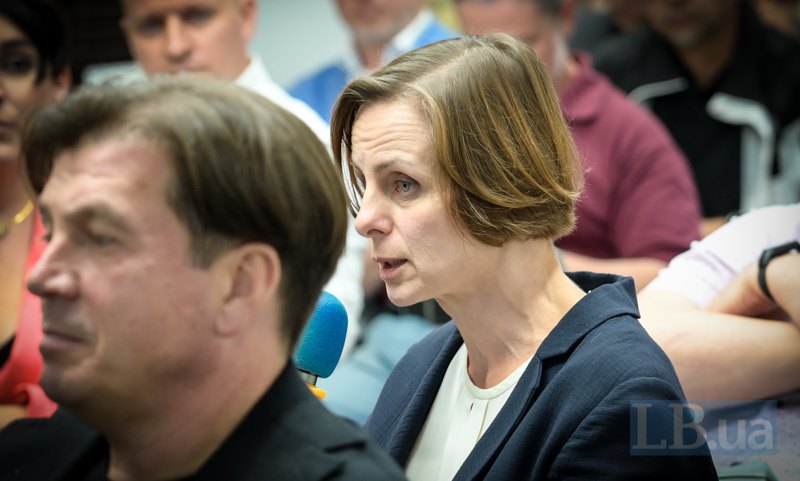 Yuliya Andrusiv
Yuliya Andrusiv

As a representative of the Business Ombudsman's Office, Yuliya Andrusiv immediately noted that she would not comment directly on the amount and type of taxes. However, she stressed that she agreed with Ihor Liski that raising taxes should be accompanied by significant changes in their administration.
According to Andrusiv, the Business Ombudsman Office has developed a programme of good tax administration and is looking for ways to implement it.
"We believe that this new paradigm of tax administration should be based on a number of principles. For example, consult first - when the government, instead of imposing sanctions and then engaging in a dialogue, does the opposite. First, it starts a dialogue with business and gives it the opportunity to fix problems. And only if these problems are not fixed does it impose sanctions.
We have collected and developed a declaration of good governance, which sounds more complicated - the Declaration of Fair and Prudent Administration. It contains a number of principles that we see as important and fundamental for this new paradigm of tax administration and any other public administration. This applies to the State Tax Service and other government agencies. We are now looking for a champion in the government who would take this programme for implementation," said the Deputy Business Ombudsman.
Ihor Burakovskyy, Director of the Institute for Economic Research and Policy Consulting, Professor: "Tax justice has horizontal and vertical dimensions"
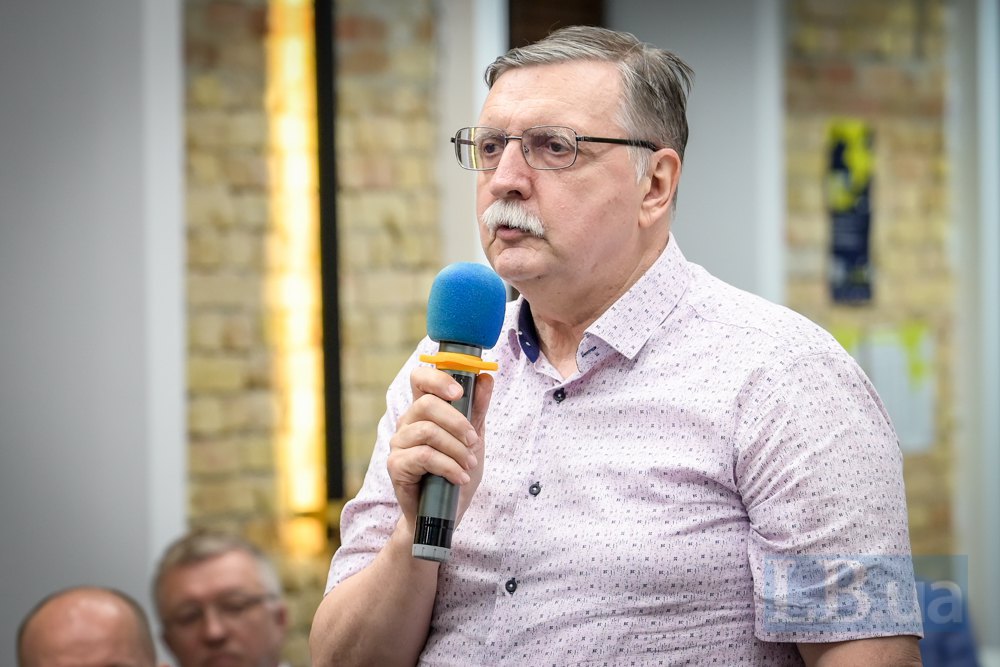 Ihor Burakovskyy
Ihor Burakovskyy

According to the director of the Institute for Economic Studies, a textbook on micro and macroeconomics contains a clear definition of what tax justice is. And this definition can become the basis of a social contract.
"Tax justice is two principles that need to be implemented, and then we can talk about some specific things.
The first principle is vertical justice: the more income you receive, the more taxes you pay.
And horizontal justice - if we work, earn the same income, pay the same taxes. This should be one of the foundations of the so-called social contract," the professor believes.
Hlib Vyshlinskyy, Executive Director of the Centre for Economic Strategy: "We must keep Russian assets as a source of last resort"
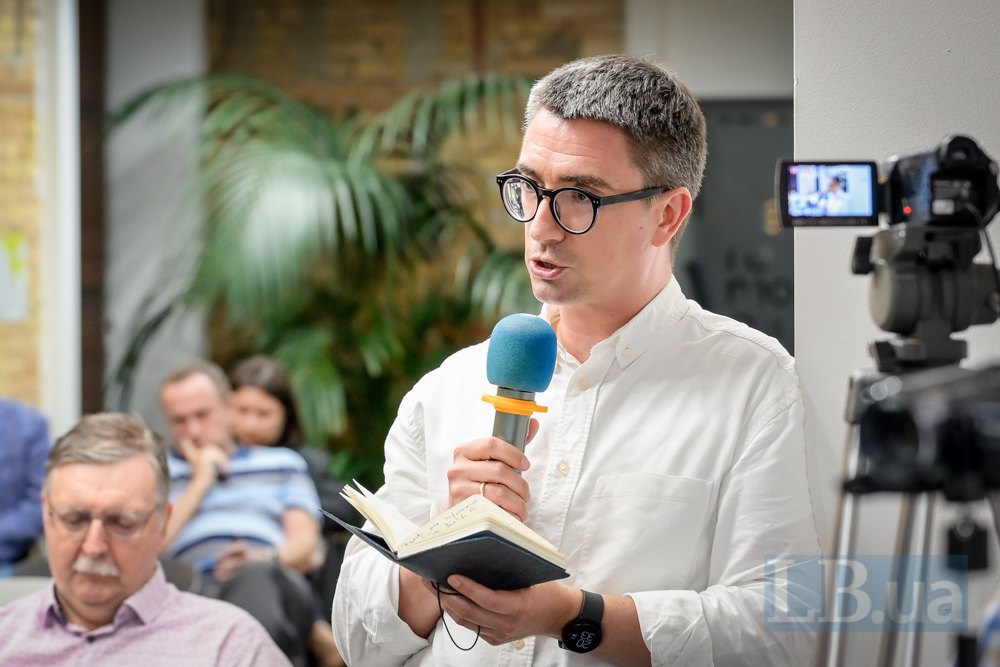 Hlib Vyshlinskyy
Hlib Vyshlinskyy

To achieve the main goal - to support defence capability, i.e. to generate enough revenue to at least keep the frontline as it is - we have two types of sources: external and internal, said Hlib Vyshlinsky, director of the Centre for Economic Strategy.
"One of the external sources is taxpayers. And there is a problem with this source, because when we talk about taxpayers from Western countries, firstly, they may have their own conditions. Secondly, they have their own political situations. Thirdly, they may ask the question, what are you doing with your taxpayers if we are giving our taxpayers' money.
There is a second part, which actually seems to me to be the easiest, but for some reason it is not being addressed - the issue of Russian assets. It is exhaustive because it is a large amount, but it is a one-off. This is a potential source that we should keep as a source of last resort and hit this rock," Vyshlinskyy believes.
As for domestic sources, when deciding whether to increase the military tax or VAT, the economist adds, it is necessary to take into account what increases or decreases the shadow economy. In the one case, only those who are already in the white economy pay. In the other case, those who simply live in the country have to pay VAT, because there is no escape from VAT.
Vyshlinskyy also called economic reservation an issue of shadow corruption and the economy.
"In order to find a common language with the military (on the issue of economic reservation - Ed.), there should be a more complex model, which also provides for the possibility of economic demobilisation through a roadmap, where there will be a possibility of rotation, for example, for six months (this should be discussed), when a person will have the opportunity to get a job. Of course, if we consider the scenario that this war will last for a very long time," the analyst said.
In the context of tax increases, there is another point that no one has mentioned, Vyshlinsky stressed, which is the prevention of extreme poverty. And the state should at least ensure that the pressure is evenly distributed among everyone, because inflation primarily affects the poorest.
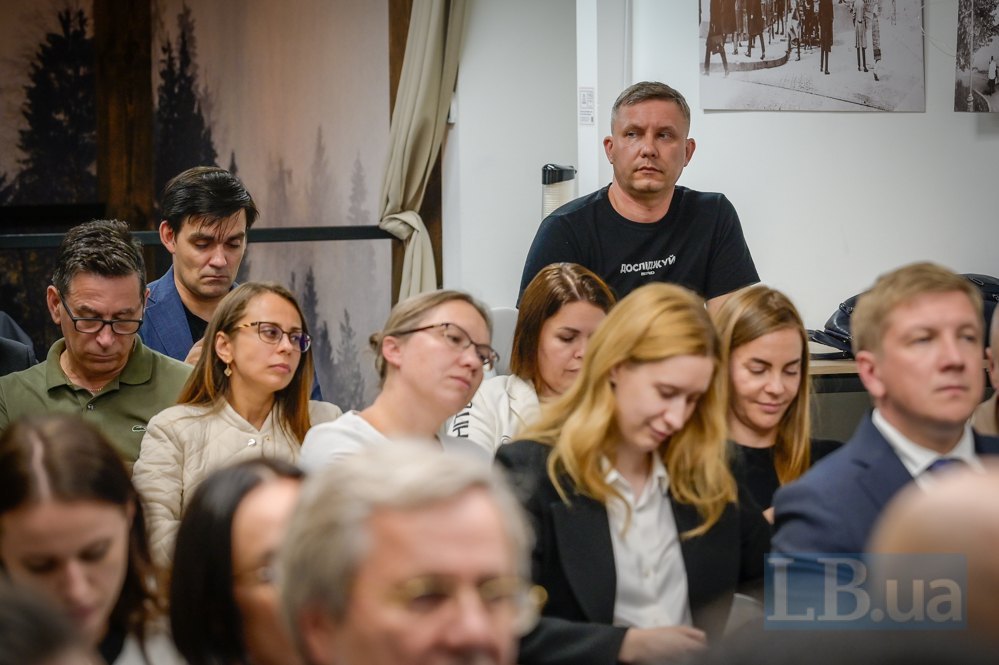
The analyst also said that easy tax administration is needed. That is why he opposed the introduction of a 1% military tax for legal entities and other initiatives of the Ministry of Finance - "too difficult to administer and small as taxes".
And the last thing that the director of the Centre for Economic Strategy suggested paying attention to was risk management.
"Today we have all discussed the problem in the United States. And this is, in fact, a reflection of the risks that exist. What will happen if Trump wins? And if Trump wins, how will we finance our survival?
So, if we get 35 billion euros, can we plan it for domestic spending or should we reserve it for the risk that we will need to buy weapons later, so that we have something to fight with for at least six months while we are cleaning up the messes of our external partners," Vyshlinskyy said.
Watch the full video of the discussion:








